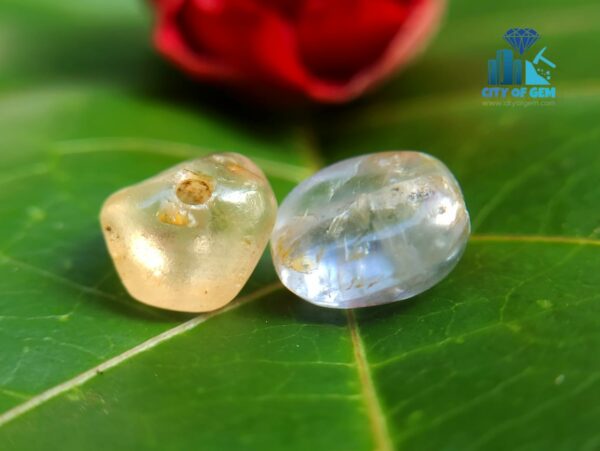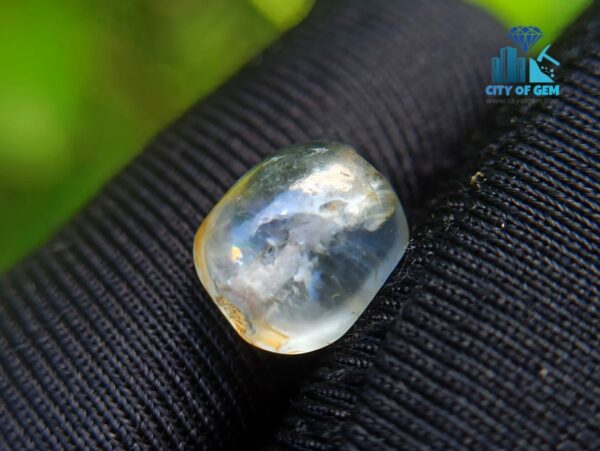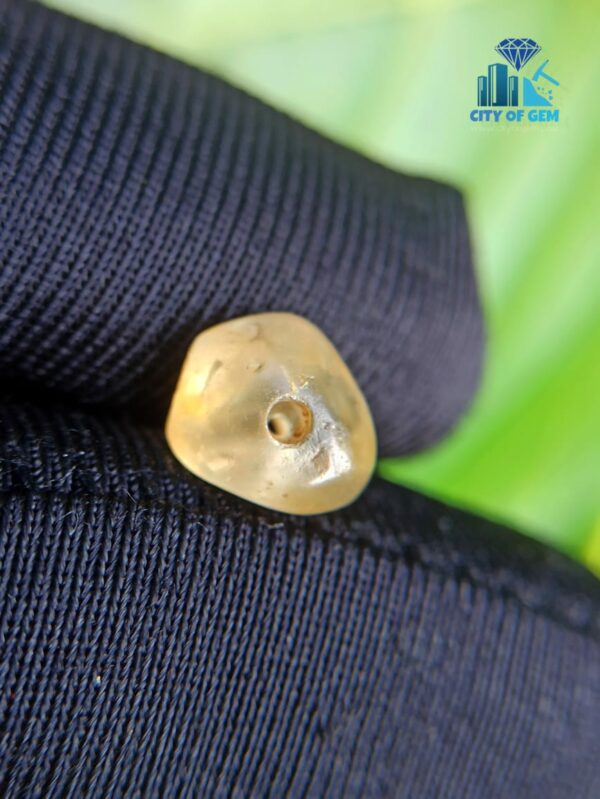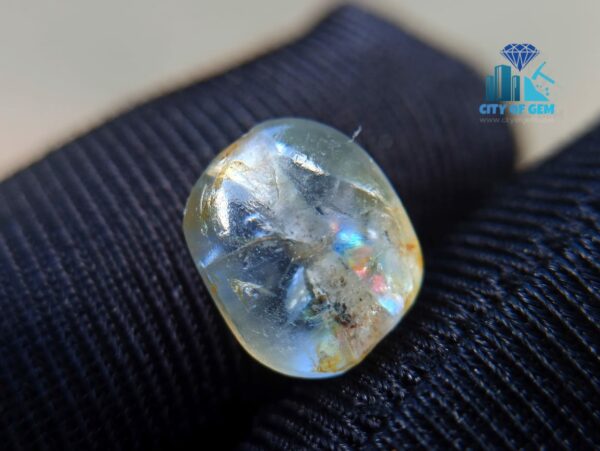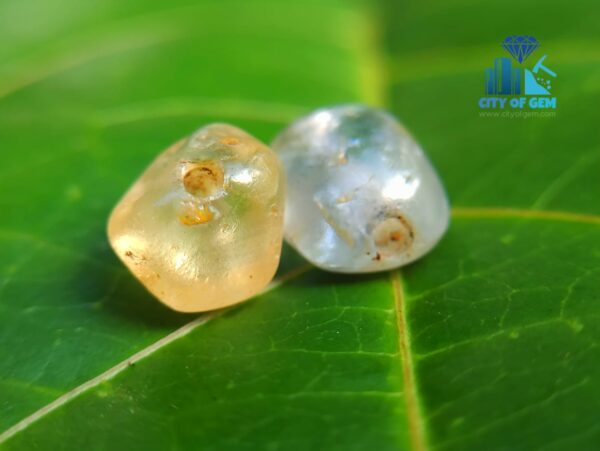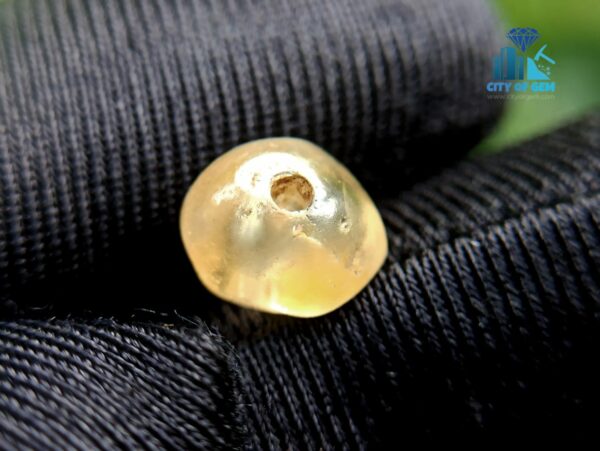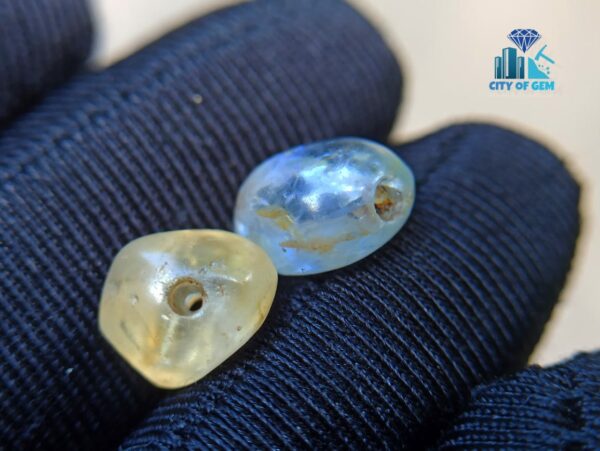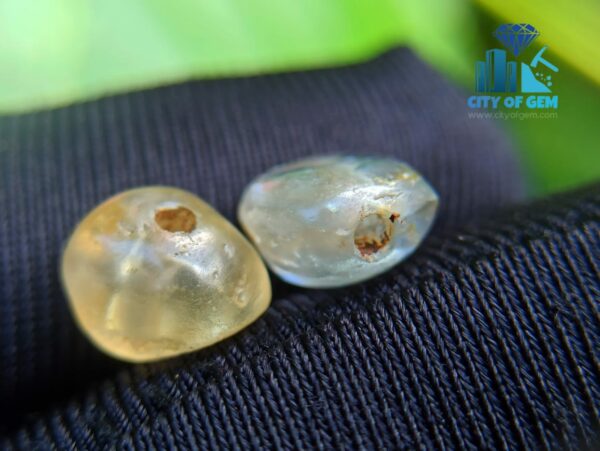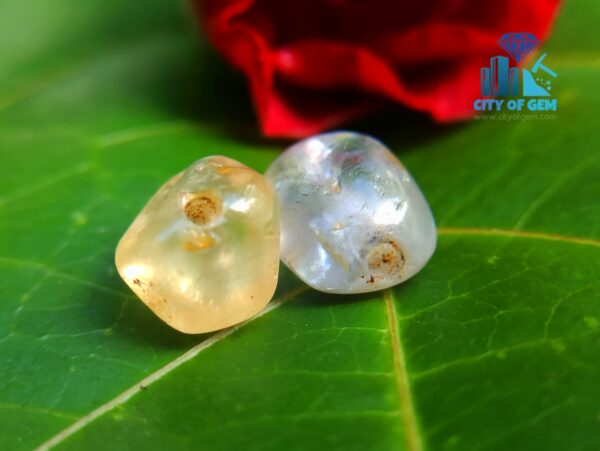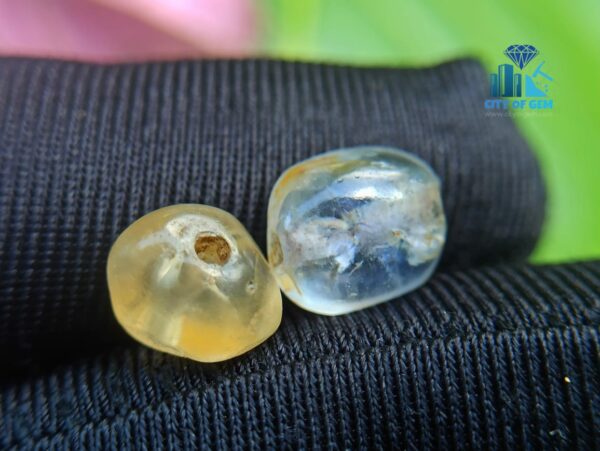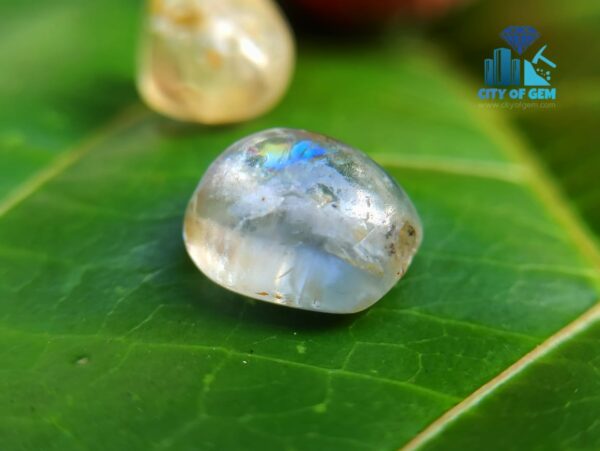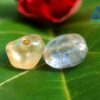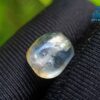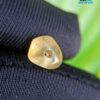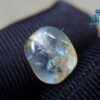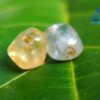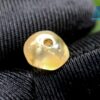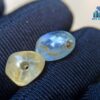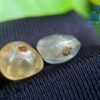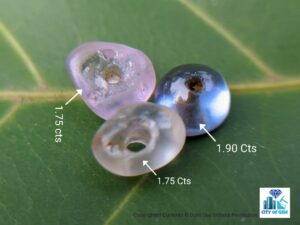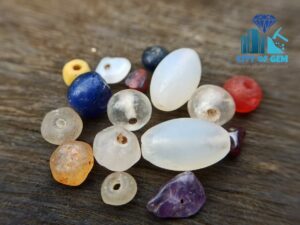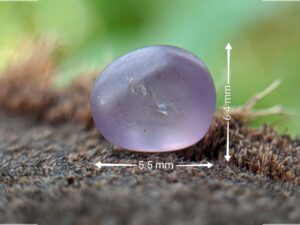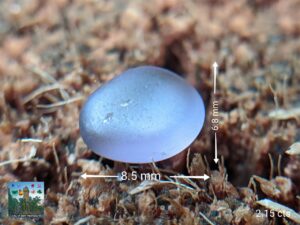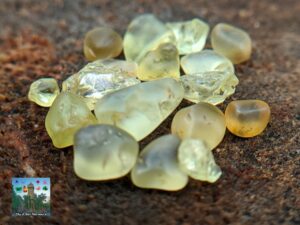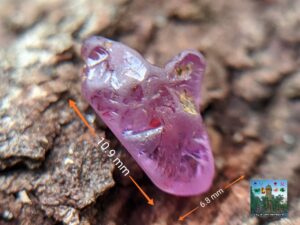Description
Delving into the heart of Sri Lanka’s gem industry, we uncover the story of the ancient Mukkaru beads, a testament to the island’s rich history and gemological heritage. These beads, crafted from natural white and light blue sapphires, are not mere stones; they are relics of a bygone era, shaped by the hands of the Mukkaru—an ancient race renowned for their gem expertise.
The Mukkaru, migrants from distant lands, settled in Sri Lanka during the reign of ancient kings. Their legacy lies in the Galpaya “Mukkaru” Deposit Mining area, where they skillfully polished sapphires—stones of Mohs hardness 9—with traditional techniques using corundum dust. These artisans transformed rough gems into polished beads, drilling them to create exquisite necklaces and jewelry that have withstood the test of time.
Today, these ancient beads, weighing 5.00 Ct and 4.12 Ct with dimensions of 9.9 x 8.2 x 5.4 mm and 8.9 x 7.5 x 6.6 mm respectively, are a rare find. Their colors, a light yellow and light blue, speak of the natural beauty and clarity that is ‘included’ within. Unheated and untreated, these polished stones carry the essence of their origin—the serene landscapes of Sri Lanka, where the Mukkaru once thrived between 700 to 1000 years ago.
The rediscovery of these beads in modern times is a narrative of reclamation and appreciation. As contemporary miners unearth the lands once worked by the Mukkaru, they find not only the gems left behind but also those undervalued in the past. Spinel and garnet, once considered low-value stones, now command high prices in the gem market, reflecting a shift in perception and value.
The history of the Mukkaru beads is a journey through time, from ancient craftsmanship to present-day recognition. It is a story that intertwines the geological with the cultural, highlighting a unique chapter in the history of the gem industry in Sri Lanka. These beads are more than just adornments; they are a connection to an ancient civilization that saw the value in the earth’s creations long before the rest of the world did.

